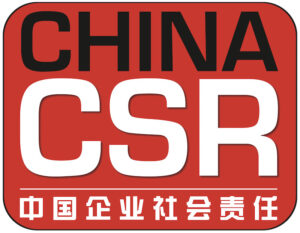By Geoffrey (Kok Heng) See
Most people would not admit to believing in prophesies. Such fanciful visions of the future belong to the realm of imagination, and not to the scrutiny of rationality. However, when it comes to the development of corporate social responsibility in China, prophets and believers abound.
They have seen the vision of the China's "Harmonious Society" policy driving the widespread adoption of CSR in China — I call this prophesy Harmonious CSR (hCSR). I like to believe in hCSR too. Unfortunately, like prophesy, the causal link between Harmonious Society and CSR is tenuous.
There is no question that Harmonious Society will affect the development of CSR in China. Early this year, the Chinese agency in charge of state-owned enterprises issued guidelines requiring SOEs to "fully understand the importance of CSR" and "combine CSR and the process of SOE reform." But the crucial question is how widespread hCSR will be. In particular, will hCSR take root in China's burgeoning domestic private sector? Underlying the hCSR prophesy is the assumption that Harmonious Society is building awareness of CSR.
But awareness need not lead to adoption. There are many companies, in a variety of countries, that know of CSR but choose not adopt it. Comparative literature is useful here, as it sheds light on why companies or industries adopt CSR. Surveying this literature, I designate two factors that constitute society's "demand" for CSR: social and institutional factors. Social factors reflect society's attitudes towards the value of CSR and the role of business in serving public aims. However, even if society is highly favorable of CSR, how society is organized influences which stakeholder views are heard, how they are prioritized, and the degree to which they can change, monitor, and enforce corporate behavior. This is where formal and informal institutional configurations play a role in determining the level of CSR. Examples include government legislation, the media, and NGOs. Together, these two factors influence the level of CSR in two ways: they shape the payoffs to engaging in CSR and provide isomorphic pressures – the adoption of CSR by companies facing similar environmental constraints.
To ensure widespread adoption of hCSR in the private sector, the Chinese government must change these factors. However, the effect of Harmonious Society on these factors is uncertain. It is possible that Harmonious Society can change societal expectations of businesses thus inducing pressures for hCSR. But we do not know if the government can succeed in changing deeply-held social attitudes, how long before change takes place, and whether China's institutional configurations will allow changing expectations to be expressed as pressure for CSR. Companies might seek to adopt CSR to appease effective non-governmental groups. More aggressive labor unions can demand better working conditions. However, Chinese laws limit the formation and activities of such groups. Changes to these laws and other relevant institutional factors that encourage hCSR are by no means certain. expected to soon come, but .
The hCSR prophesy is unlikely to be fulfilled by the Chinese private sector. But there remains a "supply" side to the CSR equation that Harmonious Society policy will influence. Top management can choose within limits how much CSR they wish to "supply" in response to "demand" conditions. This discretionary authority explains how companies facing similar "demand" conditions might have differing levels of CSR. Harmonious Society will increase SOEs willingness to supply CSR as the government is able to intervene directly to demand such actions.
Vague prophesies live the longest. Similarly vague links between Harmonious Society and CSR give the idea of hCSR unwarranted longevity. Harmonious Society will promote CSR; but largely in a shrinking SOE sector. Whether hCSR will develop in China's burgeoning private sector is far less certain, and definitely far from the certainty prophesies offers.
About the Author:
Geoffrey (Kok Heng) See is a Wharton Research Scholar and Joseph Wharton Scholar at the Wharton School's Huntsman Program for International Studies & Business. The author became interested in hCSR while working for the Global Growth Companies Headquarters of the World Economic Forum in Beijing in the summer of 2007. An extended paper analyzing this issue in greater depth is available from the author, and he also welcomes any comments and critiques at seeh@ wharton.upenn.edu.

